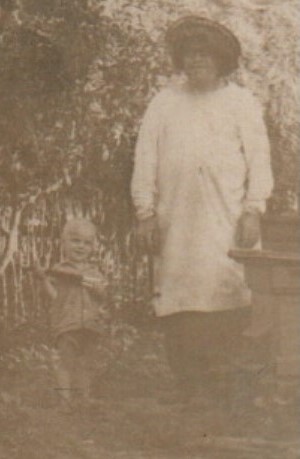
Рано утром на рассвете
Когда спали в яслях дети
Шёл по лесу мужичок
Вдруг увидел он роёк
Но не знал что в этот миг
Что свою судьбу свою сподвиг
Что затем за годом год
Пчёл понять пытался он
Время шло и дело шло
Было тяжко и легко
Появилась в жизни цель
Осознать пчёл мир теперь
Пролетела жизнь увы
Но не зря уверены
Шаг на встречу сделал он
Понимания где дом...
Где любовь и где мечты
Жизни смысл и доброты
Передать любовь он смог
К тем кого постичь не мог
Тех кого он изучал
И любил и примечал
auth. Porhun M.A.
The below poem in Russian marks the beginning of the history of our apiary.
In 1945, on his way to work, our grandfather Porkhun Mikhail Prokhorovich saw a swarm of bees that had grafted onto a tree. He took it off and put it in a box that he made from an old bench. After a while, he started multiplying bee colonies and became the owner of the apiary. The apiary was located in the village Kolosovo, Grigoriopol district.Historically, the village of Kolosovo is a village of ethnic Germans who settled in these lands during the reign of Catherine the Great. It was originally called Bergdorf, which means village in the mountains.
The yearspassed and in 1920 the consumer cooperative "Kolos" was founded in the village, which is where the new name of the village Kolosovo came from ...
In 1968, the specialization of the Kolosovo state farm changed. Alexander Mikhailovich Porkhun was the head of this farm. The leadership of the republic saw ideal conditions for growing essential oil crops and converted production. The construction of the facility began and the painstaking work on the establishment of rose and lavender farms.
In the 70s the apiary was flourishing after the opening of an essential oil facility.
The fame of pink and lavender plantations spread far beyond the region, and the plant's products were in demand even abroad.
Therefore, honey from this region had asweetsmell and conveyed all the beauty and delicate notes of Moldavian Provence ...
As time went on, and already in 1985, his grandson Mikhail Alexandrovich Porkhun, who was named in honor of his grandfather, began to help Grandpa Misha in the apiary. Every year he came to his grandfather for the whole summer to help him and learned all the subtleties of beekeeping.
Grandfather tried to convey all the love and respect for the little workers.
Then come the 90s and honey was no longer in demand on the market, and many beekeepers abandoned the "unprofitable" business .... But not our family. And all because, by this time, bees were not just a "business", but the favorite thing he put his soul into. And that means a lot ...
In 1997, the founder of the family business, MikhailProkhorovich, was gone ... The apiary was inherited by Mikhail Alexandrovich, because at that time he was already a university graduate in the agriculture department.
Until then, the apiary was stationary, but due to the reprofiling of the farm, it was necessary to decide to move to other regions to increase honey collection. So, since 2000, the apiary started “roaming” around sunny Moldova.
Over time, it was modernized, the hives were renovated, the technologies for servicing the apiary became more innovative, but at the heart of this work has always been the love for bees ...
- In 2005, Mikhail married Natalya, and she also came from a beekeeper's family. (The love for bee families is multiplied by two!)
- In 2012, the head of the farm, Mikhail Porkhun, is undergoing advanced training at the Kiev Academy of Beekeeping.
- Since 2013, the apiary has been focusing on the production of not only honey but also beekeeping products (propolis, pollen, comb capping, male bee homogenate, royal jelly, candles, moth, tinctures, ointments)
- In 2013, the farm takes part in the international congress in Kiev at Apimondia.
- In 2014, the farm takes part in the Cool-food exhibition in Dubai, where it receives a lot of positive feedback on our honey varieties.
- In 2015, the apiary begins to work and pump out honey exclusively in compliance with all sanitary and food principles of compliance according to the EU standards and we start using modern certified equipment. It was decided to use the work system with multi-level hives, thanks to which the apiary can produce monofloral varieties of honey (acacia, coriander, linden, buckwheat, lavender, sunflower).
- In 2016, the management of the farm decides to work in the field of queen breeding to provide their apiaries with breeding material. Further training takes place in Serbia, Italy, Russia, Poland.
- In 2017, the farm takes part in the international Apimondia congress in Istanbul.
- Since 2018, we have been working on a premium collection of gifts made of honey and bee products. At the moment, our team consists of 6 people, this is our family business, for the benefit of which we work and have fun!
The motto of our team is: "Each spoon of our honey will make your life brighter!"
